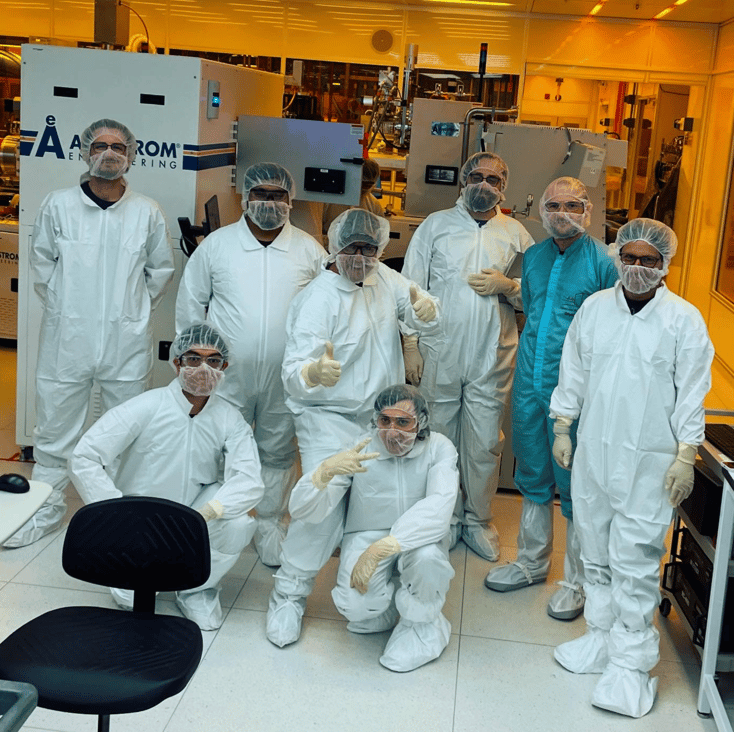Field trip to Lawrence Berkeley National Lab exposes students to cutting-edge nanotechnology and electron microscopy tools.
Laney College students had a unique opportunity this summer to peer into the tiniest dimensions of our physical world—thanks to a special field trip to Lawrence Berkeley National Laboratory’s Molecular Foundry, one of the nation’s premier research facilities for nanoscience.

Led by Laney College's Machine Technology Department Chair Adam Balogh, the group visited the Molecular Foundry and the National Center for Electron Microscopy (NCEM), both of which are world-renowned for advancing materials science at the atomic scale.
During the visit, students toured the clean room at the Foundry and operated advanced research equipment used daily by leading scientists and engineers. Among the tools they explored:
-
A scanning electron microscope (SEM) used to image surfaces at incredibly high magnifications
-
A focused ion beam (FIB) instrument used for etching and writing at the nanoscale
-
Sputtering machines and automated processing cells used in the fabrication of thin films and nanodevices
-
A glimpse into lithography and how electron beams can “write” patterns on microscopic surfaces
Their guide was a former student of Balogh’s and current staff member at the lab—highlighting the real-world connections and pathways Laney’s programs can open up for students.
The group also got a look at an innovative new device called QSPLEEM (Quantum Spin-Polarized Low Energy Electron Microscope), a one-of-a-kind instrument capable of manipulating polarized electrons and observing materials at cryogenic temperatures.
The field trip concluded at NCEM, where students stood in awe of a transmission electron microscope (TEM) capable of imaging individual atoms in a crystal lattice—one of the highest-resolution tools in modern science.
“This trip was packed with discoveries,” said Balogh. “The students were able to see just how vast and exciting the world of materials science and nanotechnology can be.”
Laney College’s Machine Technology and engineering-related programs continue to provide hands-on experiences that connect the classroom to real-world research and career possibilities. Opportunities like this help students visualize future pathways in advanced manufacturing, scientific research, and beyond.

